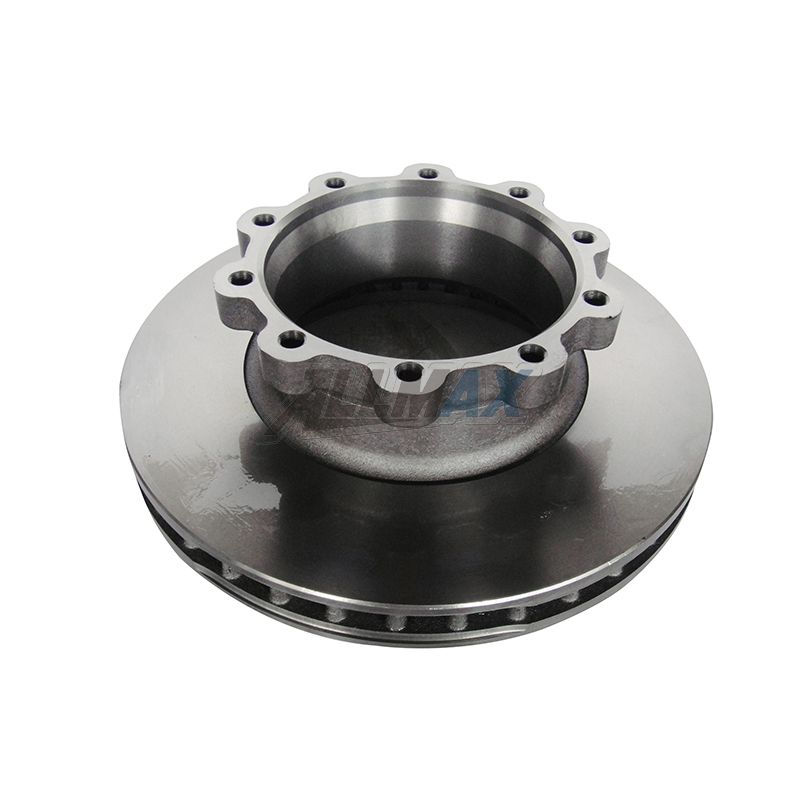Comercial Vehicle Brake Disc 140272
With decades of production experience, Allmax brake disc is known by its high performance. The brake discs are with 1 year warranty, No bubbles & sand holes, and passed ECE-R90, IATF16949, ISO9001.
Product Description
Product Description
● ECE-R90 Certificate approved
● With warranty of 1 year
● OE supplier
● No bubbles, no sand hole
● 30 days for one container to deliver
Are you tired of unreliable brake systems that compromise the safety of your vehicle and those around you?
Look no further than Scania brake discs and BPW brake pads.
Scania brake discs are designed with precision and durability in mind, ensuring that your brakes perform optimally in all conditions. With a focus on quality and safety, you can trust that Scania brake discs will deliver the stopping power you need when you need it most.
But even the best brake discs can't do their job without high-quality brake pads. That's where BPW brake pads come in. Made with state-of-the-art technology and premium materials, BPW brake pads offer superior stopping power and reduced wear and tear on your brake system. Plus, they're designed to be environmentally friendly, minimizing dust and noise pollution.
Together, Scania brake discs and BPW brake pads make a winning combination that will keep you safe on the road and give you peace of mind. Don't settle for subpar brake systems - upgrade to Scania and BPW today.
A BPW Brake Disc is a brake that uses a caliper to squeeze pairs of pads against a disc or "rotor" to create friction. This action slows down the rotation of the shaft, either slowing it down or keeping it stationary. The energy of motion is converted into waste heat which must be dissipated.
Hydraulically actuated disc brakes are the most common form of brake used in motor vehicles, but the principles of disc brakes apply to almost any rotating axis. Components include disc, master cylinder, and calipers on both sides of the disc.

BPW Brake Disc
The brake disc is the rotating part of the wheel disc brake assembly against which the brake pads rest. The material is usually grey iron, a type of cast iron. Discs are designed differently. Some are just solid, but some are hollow, with fins or vanes connecting the two contact surfaces of the disc. The weight and power of the vehicle determine the need for ventilated discs. The "vented" disc design helps dissipate the heat generated and is typically used on the heavier loaded front disc.
Common problem
Sometimes there is a loud noise or a high-pitched squeal when you hit the brakes. Most brake squeals are produced by vibrations in the brake components, especially the pads and discs. This type of squeal should not negatively affect brake-stopping performance. Techniques include adding chamfered pads to the contact points between the caliper piston and pads, bonded insulators to the pad backplates, pads between pads and pistons, and more.
When braking force is applied, the friction between the brake pads and the discs wears down the discs and pads. Brake dust deposited on wheels, calipers, and other brake system components can be seen to consist primarily of brake disc material. Brake dust can damage the surface of most wheels if not washed off. Typically, brake pads that have more brake disc material removed more forcefully will generate more brake dust. Some high-performance brake pads for track or traction may wear out faster than regular brake pads, thus causing more dust due to increased disc and pad wear.
|
Dimension |
255mm |
|
Disc thickness |
22mm |
|
Minimum thickness |
20mm |
|
Height |
72mm |
|
Hole |
5 |
|
Certificates |
ECE-R90, IATF16949, ISO9001, ISO14001, CCC |

